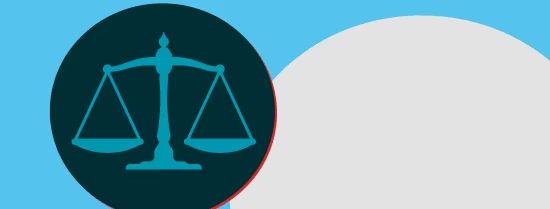It’s #SocialJusticeWeek at ISS! We’re finding out from staff and students what social justice means to them. Join us as we explore new ideas every day of the week!
We spoke to Dr. Otieno Ong'ayo (Antony) to learn a little more about a project that he is currently working on, led by Dr. Auma Okwany. The project aims to strengthen the capacity of educational institutions and partner organizations in sexual and reproductive health and rights (SRHR) for the inclusion of young people in Benin
What is the current project that you're working on?
This institutional strengthening project funded by Nuffic through the Orange Knowledge Programme (OKP) responds to the significant SRHR challenges faced by young people in Benin. It is implemented by a consortium of 7 partners led by ISS-EUR and the University of Abomey- Calavi in Benin. The project is set within the context of significant youth SRHR challenges including competency gaps for diverse practitioners, thus limiting the capacity of youth to navigate diverse SRHR contexts. We adopt a social justice approach in project activities to support inclusive, accessible quality SRHR training by giving prominence to youth voice and perspectives.
What, according to you personally, is social justice?
Social justice can be considered as a call to address the human condition in everyday life - in terms of possibilities, how society functions and the extent of possibilities and livelihoods that people belonging to different categories have. It addresses the question of inclusion, fairness and/or access to basic rights like health, employment, housing, education and so on.
Social justice also acknowledges that people are not passive in these processes. As human beings, they have agency which enables them to discern what is important for them and to act on those choices. That ties into essential questions around social transformation, human rights, access to resources and services, and participation in decision making which affects them. It’s important that no one gets left out.
How do you see the concept of social justice fitting into the OKP Benin project?
One main focus of our project is on strengthening institutional capacity. I find that to be very relevant to the question of social justice because it targets people who are offering services in SRHR. Competency and increased efficiency among service providers is likely to create programmes that are sensitive to the needs of people at the local level.
Sensitivity to local assets and needs requires a new paradigm for understanding people's needs from their own perspectives and lived experiences. It is at this juncture that we delve deeper into aspects of inclusivity and respect. Reproductive health is a very sensitive area. Women, both mothers and girls, have a lived experiences that are very personal and unique to each person, hence for us to work with that subject of SRHR, we need to find a way to listen to their voices so that their voices can be translated into policy and programs that can improve services.
At the same time, a gender-transformative and youth-sensitive approach addresses the social justice question through integration and strengthening of SRHR in the educational programme. Through this approach the project aims to build capacity within the youth themselves, so that they can develop platforms to express themselves and reach out broadly. This will translate into partnerships through the context-specific lived experiences of the youth. Their own agency and skills would be best placed to generate better ways of addressing SRHR among the youth.
“We are trying to listen to the youth, understand their perspectives, ensure that their voices are amplified, and their agency acknowledged on matters related to sexual and reproductive health”
You mentioned how important it is to listen to the people who are a part of this project. What led you to identify that as a key aspect?
In most capacity building initiatives, interactions with beneficiaries is often shaped by an assumption that they are not aware of many things about themselves and context. Sometimes the concepts and ideas that are promoted come out as very strange to people in the project areas, simply because they come from a very different socio-cultural context. But this does not erase their knowledge or invalidate their ways of knowing. This is where deep listening is crucial to break communication barriers. If one would ask questions and listen deeply to what things mean or how other people see and experience things, research frameworks could be very different. Doing so, would help one to understand the local systems and values, what people’s assets and needs are and how they would like to solve issues.
For this reason, it is necessary to have an honest conversation about what is at stake. In that way, we are likely to come up with better interventions because it's no longer just one-sided. This is the paradigm shift that is needed in real partnerships, and genuine exchanges that we are striving to inculcate and promote by emphasizing the inclusion and amplification of youth voices and engagement in meaningful ways through our research and work with partners in Benin.
We would like to support the youth to have platforms where they can be agents of change within their own communities. This is one example of how we’re trying to establish open channels of communication and create pathways to keep learning from and with the beneficiaries of this project. The idea is for them to use their own language to communicate what matters to them, between themselves but also to us and the people working with them. In that way, we hope to learn much more about how we can work with young people about SRHR.
- Researcher
- More information
Working through a gender transformative and youth sensitive approach, the OKP Benin project’s strategies will include SRHR curriculum review and integration, teaching/training capacity strengthening, and a research-based platform for SRHR dialogue and policy engagement. Project number: OKP-BEN-104887
- Related links
- Interested in more bitesize ISS Research? Visit the Research InSightS page

